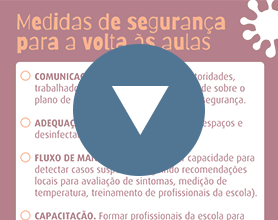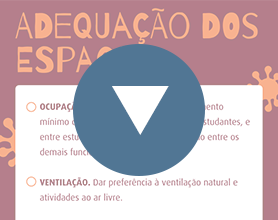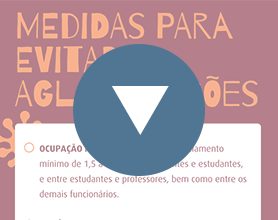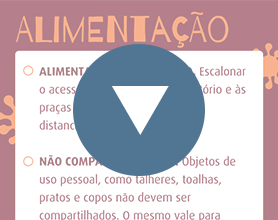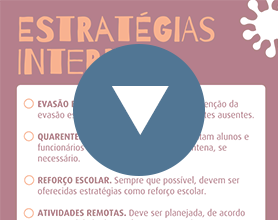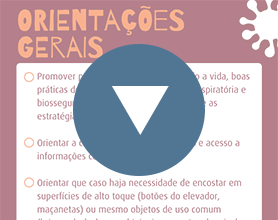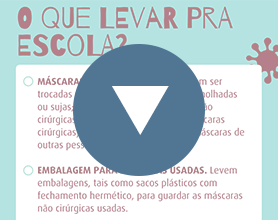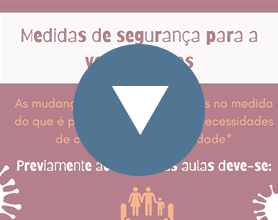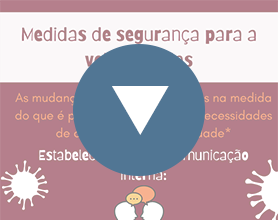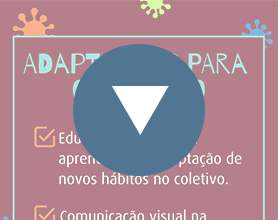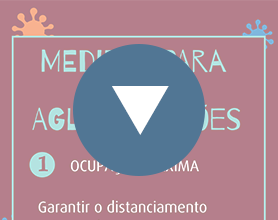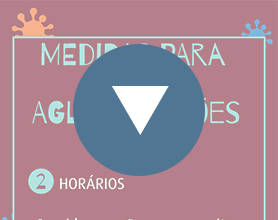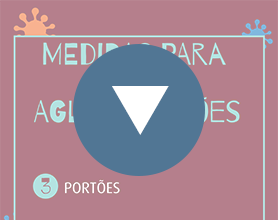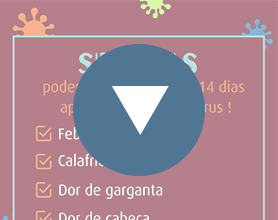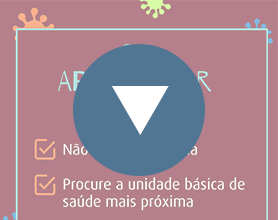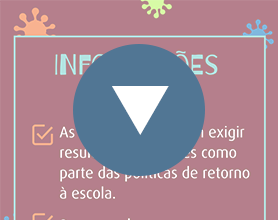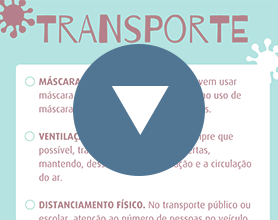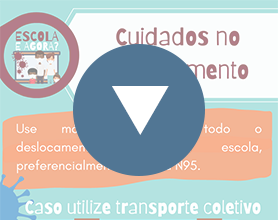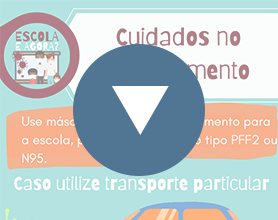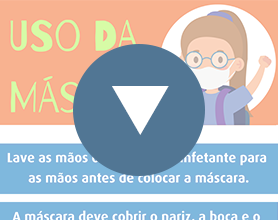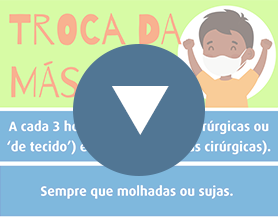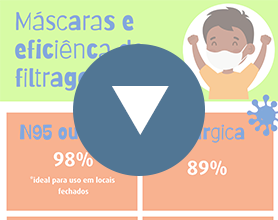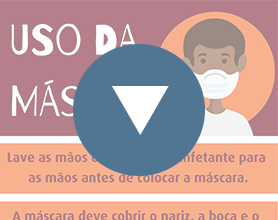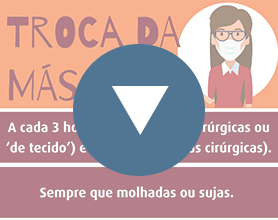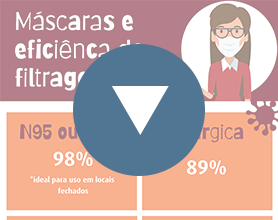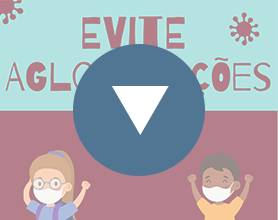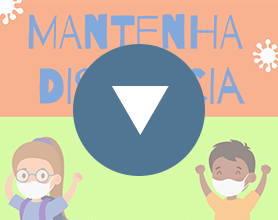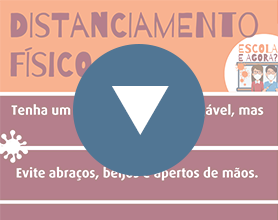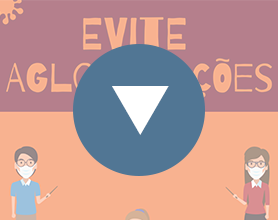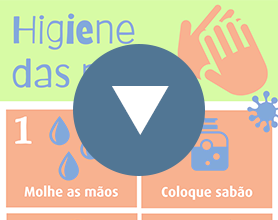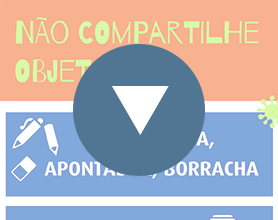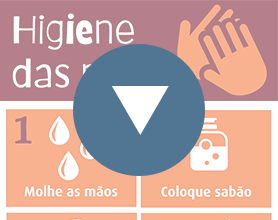
Several countries are facing the challenge of providing a safe environment for the return to classroom-based learning in schools during the COVID-19 pandemic
This is especially important in countries with low vaccination rates and the widespread impact of new strains. To help ensure adequate classroom safety, The Global Health Network COVID-19 Research Implementation and Knowledge Hub’s Lusophone Working Group developed COVID-19 School Safety Communications Kit in Portuguese. The communications kit includes materials that can help school managers plan and communicate the most up-to-date strategies related to COVID-19 transmission prevention. These are based on the Joaquim Venâncio Polytechnic School of Health/Oswaldo Cruz Foundation in Brazil guidelines on biosafety regarding the return of classes.
The material in the communications kit are:
- Free to download
- Available in higher resolution format for printing purposes
- Available in lower resolution format for easier and faster downloads
- Adapted for school staff, families and children
The communication kits have been designed following a colour scheme for each target group:
|
School staff |
|
Families |
|
Children |

Can you help share the communications kit?We encourage users to share the communications kit and posters on social media. |
Menu
Kit 1 – PREPARING TO RETURN
|
Checklist 1 Medidas de segurança para a volta às aulas |
|
Checklist 2 Adequação dos espaços |
|
Checklist 3 Medidas de segurança para a volta às aulas |
|
Checklist 4 Alimentação |
|
Checklist 5 Estratégias internas |
|
Checklist 6 Orientações gerais |
|
Checklist 7 O que levar para a escola |
|
Infográfico 1 O que levar para a escola |
|
Stories 1 Previamente ao retorno |
|
Stories 2 Estabelecer boa comunicação |
|
Stories 3 Traçar estratégias |
|
Stories 4 Adaptações para o retorno |
|
Stories 5 Aglomerações 1 |
|
Stories 5 Aglomerações 2 |
|
Stories 5 Aglomerações 3 |
|
Stories 6 Sintomas |
|
Stories 7 Se apresentar sintoma |
|
Stories 8 Informações gerais |
![]()
Kit 2 – ARRIVING AND LEAVING SCHOOL
|
Checklist 8 Transporte |
|
Infográfico 2 Transporte coletivo |
|
Infográfico 3 Transporte particular |
|
Poster 1 Com COVID, sem escola |
|
Poster 2 Com COVID, sem escola |
|
Poster 3 Com COVID, sem escola |
![]()
Kit 3 – MASKS
|
Poster 4 Use máscara |
|
Poster 5 Use máscara |
|
Poster 6 Uso da máscara |
|
Poster 7 Troca da máscara |
|
Poster 8 Máscaras e eficiência de filtragem |
|
Poster 9 Use máscara |
|
Poster 10 Use máscara |
|
Poster 11 Uso da máscara |
|
Poster 12 Troca da máscara |
|
Poster 13 Máscaras e eficiência de filtragem |
![]()
Kit 4 – PHYSICAL DISTANCING
|
Poster 14 Evite aglomerações |
|
Poster 15 Distanciamento físico |
|
Poster 16 Mantenha distância |
|
Poster 17 Distanciamento físico |
|
Poster 18 Evite aglomerações |
![]()
Kit 5 – HAND HYGIENE
|
Poster 19 Higiene das mãos |
|
Poster 20 Não compartilhe objetos |
|
Poster 21 Higiene das mãos |
|
Poster 22 Não compartilhe objetos |
![]()
VIDEOS
|
Video 1 O que levar para a escola? |
|
Video 2 Cuidados com o transporte |
![]()
About The Global Health Network’s COVID-19 Lusophone Working Group
Implementing research studies during this pandemic can be made faster and easier by working collaboratively.
Following feedback from our research workshops and requests from researchers around the world, the COVID-19 Research Implementation and Knowledge Hub set up open virtual working groups to support research study implementation during this pandemic.
The Global Health Network's working groups aims to discuss and reach consensus on emerging research gaps in COVID-19, focusing on resource-poor settings. This working group was formed to find ways to strengthen research and response to COVID-19 carried out in Portuguese-speaking countries.
Researchers from Cape Verde, Brazil and Mozambique who work or wish to work in health systems came together in this group to discuss ideas, form collaborations, access funding, as well as share results and resources that others can use.
Acknowledgements
Larissa Deadame de Figueiredo Nicolete (University of International Integration of the Afro-Brazilian Lusophony, Brazil)
Ana Lia Mazzeti (Oswaldo Cruz Foundation, Brazil)
Celina Monteiro Abreu (Johns Hopkins University, Brazil)
Francisco Dantas Lourenço (University of International Integration of the Afro-Brazilian Lusophony, Brazil)
Gabriel Alves Desiderio (University of International Integration of the Afro-Brazilian Lusophony, Brazil)
Natanael de Oliveira Lima (University of International Integration of the Afro-Brazilian Lusophony, Brazil)
